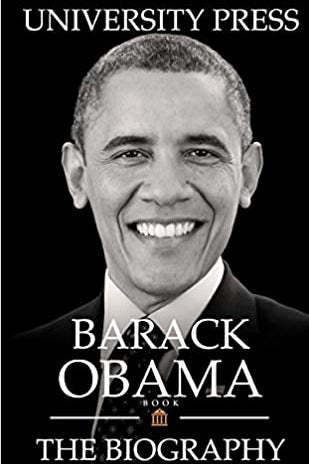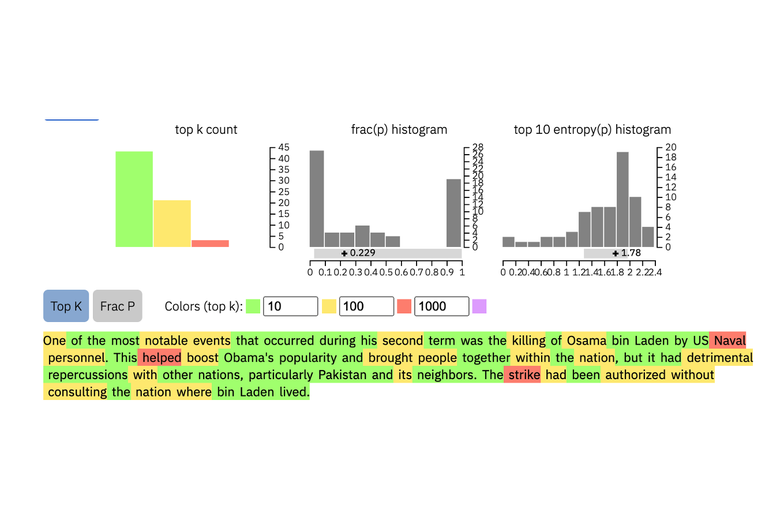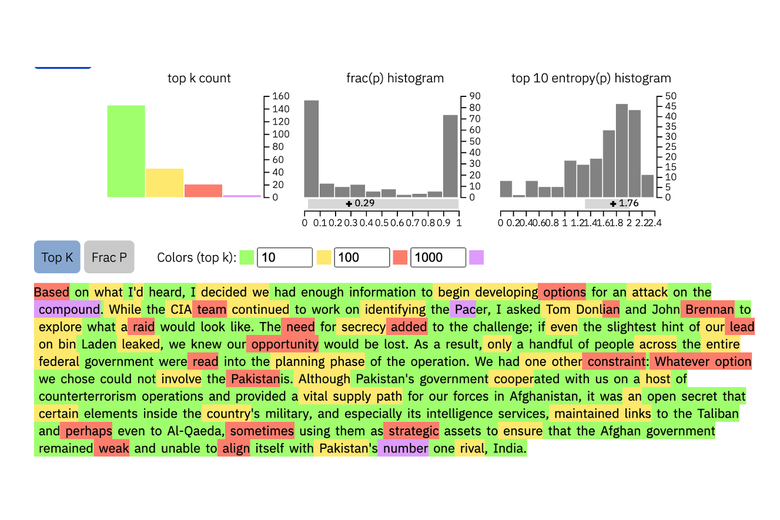Slate has relationships with various online retailers. If you buy something through our links, Slate may earn an affiliate commission. We update links when possible, but note that deals can expire and all prices are subject to change. All prices were up to date at the time of publication.
Update, Nov. 20, 2020, at 12:03 p.m.: After creeping into the Top 100 on Amazon, this title was removed from the site on Friday morning. Other “University Press” books are still for sale, however.
Perhaps you’ve heard that there is an exciting new Barack Obama book that everyone’s talking about! I’m not talking about A Promised Land, the 751-page memoir and large physical object for which publisher Crown paid Obama tens of millions of dollars and which Obama spent four years writing (without a ghost, he brags).
No, I’m talking about Barack Obama Book, a 61-page tome by an author named “University Press.” Why is Barack Obama Book selling so well? Thanks to sponsored listings and canny search engine optimization, the book appears above Barack Obama’s actual memoir if you search Amazon for—you guessed it—“barack obama book.”

Nelson, an editor at Harper, has in fact understated the popularity of Barack Obama Book. At this writing, Barack Obama Book has ascended to No. 114 on Amazon, well below Barack Obama’s Barack Obama book (currently No. 1) but not too far away from former White House photographer Pete Souza’s Barack Obama book. It’s even the No. 1 bestseller in “Political Leadership,” just ahead of such august titles as Barack Obama’s The Audacity of Hope and Kamala Harris: The Biography, written by … uh … “University Press.”
What is Barack Obama Book? As Nelson tweeted, it’s not a book, exactly. It’s an SEO ploy by a shadowy company that has scores of $2.99 knockoffs ready to be downloaded, from quickie biographies of au courant figures like Obama, Harris, and Dolly Parton, to obvious bestseller ripoffs like Caste: A Brief History and Ready Player 3, 2, 1: A Brief History (?).
But it’s also not not a book, in the sense that it is words on pages, bound by covers or delivered to your Kindle. I know, because I read every word on every page of Barack Obama Book. It took about 20 minutes. I don’t think Barack Obama Book was written by a human being, but I do think the A.I. that excreted it made some decent points about Barack Obama.
Divided into 14 chapters with titles like “A Difficult Beginning,” “United States Senate,” and “Second Term,” Barack Obama Book is written in what I can only describe as placeholder prose, a kind of English-language lorem ipsum that delivers meaning without any observable personality. “After a year with the consulting firm, he accepted a position in Chicago as a community organizer,” University Press writes about Barack Obama’s post-collegiate life. “His primary responsibility was working with low-income residents living on the south side of the city.”
Every now and then a tiny glitch appears in the engineering, like the third leg hiding in a heavily photoshopped magazine cover:
If the most significant success Obama had during his first term (and what he took the most pride in) was health care reform, one of the things he was most proud of from his second term was the Defense of Marriage Act. Because of a ruling by the Supreme Court, this ensured that all people were allowed to marry whomever they wanted, nullifying laws that discriminated against same-sex marriages.
The odd parenthetical interrupting the very formulaic first term/second term structure; the presentation of the Defense of Marriage Act as the accomplishment rather than the legislation that was nullified—there’s something just a little bit wrong here. This paragraph conveys information while still setting off my uncanny valley alarms.
Is Barack Obama Book written by an A.I., or just by an awkward, occasionally confused human? I’m no expert. But the Giant Language Model Test Room is an expert. GLTR, a tool developed by Harvard’s natural language learning project and the MIT-IBM Watson AI Lab, helps to identify A.I.-written copy by comparing every word in a text with the words that common machine-learning algorithms would commonly predict would appear in that position. The more uncommon or unlikely the words in a text are, the more likely they were written by a human, not by a machine.
I fed a paragraph from Barack Obama Book into GLTR. It’s about Obama’s 2011 decision to launch a raid on the compound where intelligence suggested Osama bin Laden might be hiding. In this GLTR result, words highlighted in green and yellow are very common machine-language choices, while words highlighted in red and purple are uncommon.

As you can see, nearly every word is highlighted green or yellow, strongly suggesting that the prose was A.I.-generated. By way of comparison, let’s take a look at a paragraph about the bin Laden raid from A Promised Land:

While there’s still a lot of green and yellow there—you can only do so much, I guess, within the constraints of Serious Presidential Memoir Style—we also see a good deal of red and even purple words, evidence of a human brain behind the prose. (I reached out to whomever—or whatever—is behind University Press, to ask whether they are man or machine, but have not heard back.)
What’s surprising about Barack Obama Book isn’t that it’s a callow, booklike product generated solely to fool unsophisticated Amazon readers (or satisfy incurious ones). It’s that Barack Obama Book basically does an OK job of explaining Barack Obama, in a book. Using very, very common words, the A.I. or whatever plumbs Obama’s difficult relationship with his father, bluntly evaluates his failed campaign for the House of Representatives, and evaluates the accomplishments of his presidency. University Press even takes on birtherism and other racist conspiracies about the president. “There is no real point to this conspiracy theory,” University Press writes about the long-standing incorrect belief that Obama is Muslim, “making it highly interesting to see why so many people believe it.” He/she/it’s not wrong!
University Press has churned out 55 books since February 2019, and I like to imagine the hardworking A.I. behind these titles holed up in a hotel room somewhere, chain-smoking, downing coffee, and furiously digesting every single extant fact about, say, Queen Elizabeth. Then the A.I. compacts all that information into a small, dense slab of readable prose and sends it out into the world. “To knowledge!” University Press toasts at night, watching the royalties flood in. Sometimes it invites over friends like Birthday Song, who performs hundreds of versions of the birthday song personalized for individual names on Spotify, or Videogyan, who creates iterative animations of babies doing ordinary tasks and has nearly 10 million YouTube subscribers. Perhaps a bit sloshed, University Press lectures its friends long into the evening: “Ultimately,” it intones, “Barack Obama is just a human being with considerable charisma and charm who used his abilities to help him become President of the United States.” Its friends raise their glasses. “Happy Birthday Barack,” sings Birthday Song.
I don’t know that I see the success of University Press, and all the other quasi-companies gaming the various algorithms that rule our lives, as evidence of how far our nation’s fallen. For what is the success of University Press but a confirmation of the power of good old-fashioned innovation in a capitalist society? The market cried out for very short, nearly literate word-slurries about famous people. Thank goodness that someone—or some thing—has stepped up to provide them.
"selling" - Google News
November 20, 2020 at 07:19AM
https://ift.tt/3fcUZjW
A Mysterious Obama Biography Was Selling Like Crazy on Amazon. Did a Human Write It? - Slate
"selling" - Google News
https://ift.tt/2QuLHow
https://ift.tt/2VYfp89
Bagikan Berita Ini















0 Response to "A Mysterious Obama Biography Was Selling Like Crazy on Amazon. Did a Human Write It? - Slate"
Post a Comment